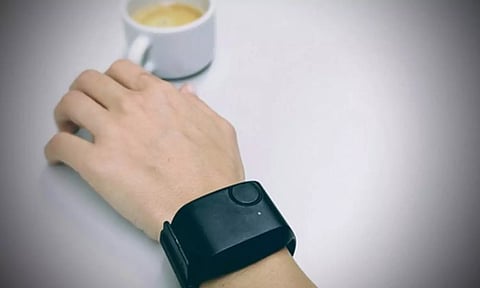

LONDON: To help people suffering from bipolar disorder and offer rapid and personalised treatments, researchers have built a wearable bracelet and shared preliminary results of using wearable technology to measure electrical impulses in the skin and other physiological biomarkers which might be associated with mood changes in bipolar disorder.
Bipolar disorder (formerly called manic-depressive illness or manic depression) is a mental illness that causes swings in a person’s mood, energy, activity levels, and concentration.
In the study performed by the European College of Neuropsychopharmacology, a group of Barcelona-based psychiatrists, in collaboration with data scientists in Edinburgh, have used a research-grade wearable device to continuously collect several 'physiological biomarkers' during the diverse phases and episodes of bipolar disorder.
Among the collected physiological biomarkers is electrodermal activity which uses changes in the skin’s electrical conductivity to indicate the level of stress through the reactivity of the nervous system -- a potential immediate indicator of whether someone is in a manic, depressive or in a normal mood state.
The researchers recruited 38 patients with bipolar disorder and 19 healthy controls.
"We found that bipolar disorder patients in their depressed phase had on average a significantly lower skin electrical activity than the rest of the bipolar group or the healthy control group. We also found that as an individual moved from manic to depressive state (or vice versa), this was detectable by a change in skin surface electrical activity," said researcher Diego Hidalgo-Mazzei.
"This can help with a prompt diagnosis and early personalised treatment, but it can also help in preventing adverse outcomes, for example in alerting to an increased risk of suicide, or of mood swings which may lead to dangers with activities such as driving. It is also easier to treat patients if we know if they are in a manic phase or a depressed phase," he added.